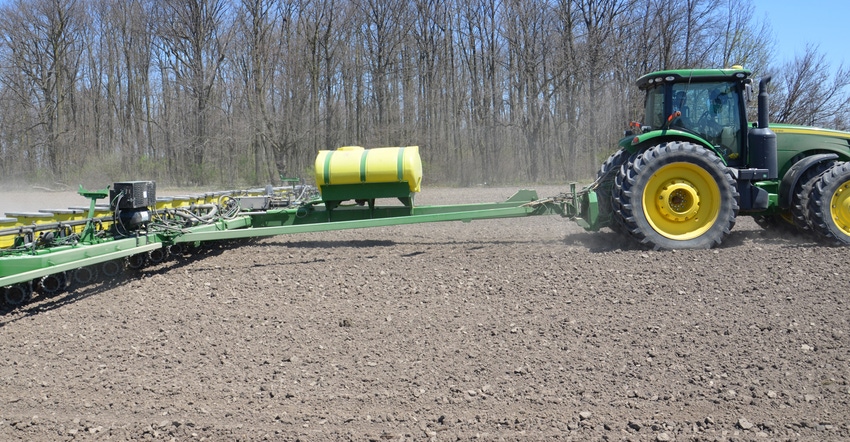July 24, 2020

A team of researchers from Kansas State University received nearly $300,000 in funding from USDA's National Institute of Food and Agriculture to pursue "Enhancing Crop Productivity by Developing Operational Strategies for High-Speed Precision Seeding Technologies."
The three-year project involves conducting on-farm studies in collaboration with producers to better understand planter control system dynamics during high-speed planting. This will be observed under varying seeding rates, row spacing, planting depths, tillage systems, and weather and soil types.
"We will establish recommendations for producers to smartly implement machine operating parameters to achieve uniform emergence. This in turn will improve stand establishment, early-season growth and yield optimization on a row-by-row basis," said Ajay Sharda, associate professor in the Carl and Melinda Helwig Department of Biological and Agricultural Engineering at K-State, will lead the team. Sharda is also the Carl and Mary Ice Keystone research scholar in the Carl R. Ice College of Engineering at K-State.
On-farm research with producers as partners will provide a metric to assess the advantages of adopting precision planter technologies — not only from the machinery but also from the agronomic perspective with the ultimate goal of improving overall productivity and profitability.
"This will develop strong extension and applied research programs for disseminating this material," Sharda said. "It will showcase best management practices for optimizing current precision planter technologies to achieve uniform seed placement and gain yield advantages."
The project will require Sharda and K-State co-collaborators Ignacio Ciampitti, agronomy, and Edwin Brokesh, biological and agricultural engineering, to adopt novel methodologies and robust high-frequency data acquisition systems for gathering detailed machinery and agronomic data.
"Collecting this multiyear, large scale on-farm research data," Sharda said, "will not only allow our students to work with state-of-the-art technologies for their professional development, but will also enhance K-State's research capacity to engage with numerous research partners to conduct collaborative large-scale on-farm research."
Engagement and support will also be provided by Kansas extension agents Tony Whitehair, Dickinson County, and David Hallauer, Meadowlark Extension District.
Source: Kansas State University, which is solely responsible for the information provided and is wholly owned by the source. Informa Business Media and all its subsidiaries are not responsible for any of the content contained in this information asset.
Read more about:
ResearchYou May Also Like




